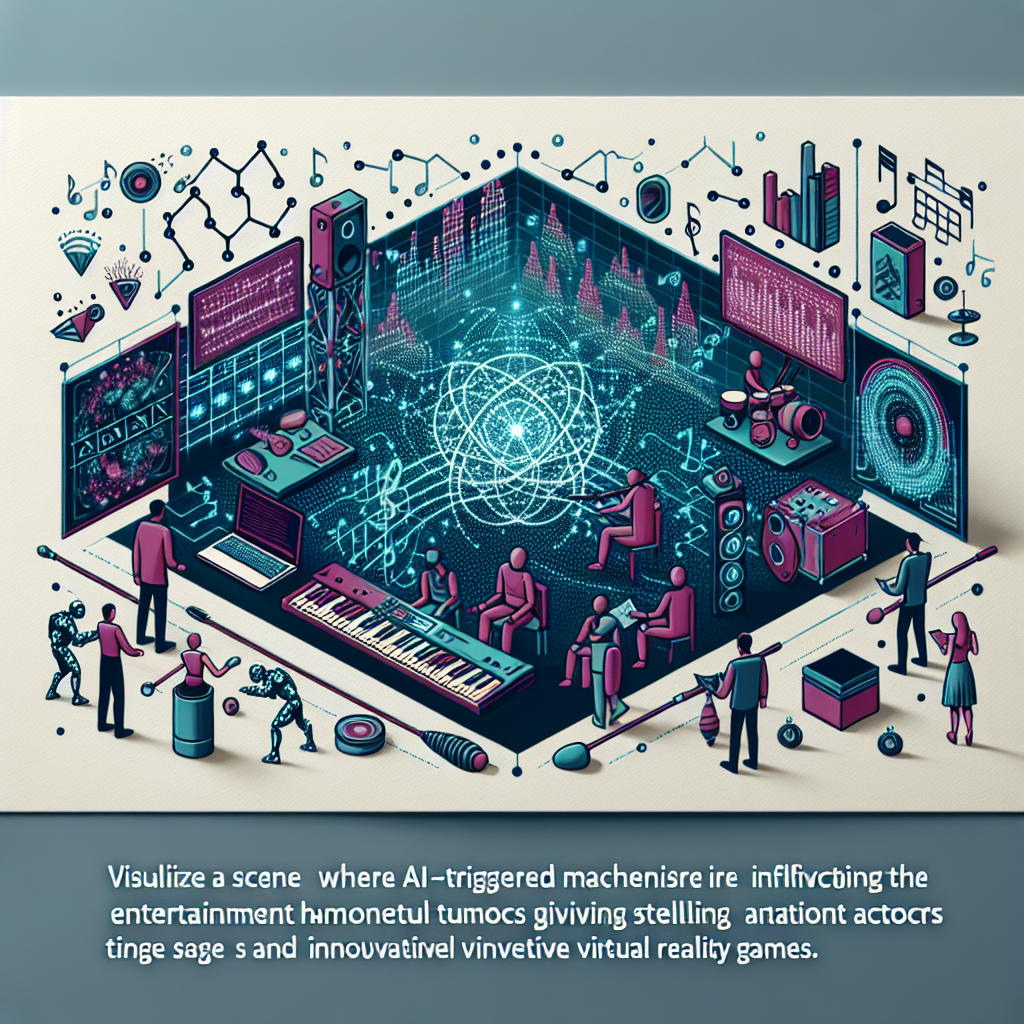In recent years, the entertainment industry has seen a significant rise in the use of AI influencers. These digital personalities, created using artificial intelligence technology, are becoming more and more prevalent in various forms of media, from social media platforms to music videos and even fashion campaigns. The rise of AI influencers raises questions about the future of marketing, branding, and the role of human influencers in the industry.
One of the most well-known AI influencers is Lil Miquela, a digital model and singer who has amassed a large following on social media platforms like Instagram. Lil Miquela’s Instagram account features photos of her in various outfits and poses, along with captions that often touch on social issues and promote brands. Despite being a digital creation, Lil Miquela has been able to forge partnerships with real-life brands and even released a few singles that have garnered millions of streams on music platforms.
Another popular AI influencer is Shudu, a digital supermodel created by British photographer Cameron-James Wilson. Shudu’s Instagram account features stunning images of her in high-fashion outfits and exotic locations, garnering attention from both the fashion industry and social media users. With her flawless beauty and striking poses, Shudu has been able to land collaborations with real-life fashion brands and has even been featured in magazines and fashion campaigns.
The rise of AI influencers can be attributed to the advancements in artificial intelligence technology, which have made it possible to create hyper-realistic digital personalities that can interact with audiences in a way that was previously reserved for human influencers. With their flawless beauty, unique personalities, and ability to work 24/7 without the need for rest or compensation, AI influencers offer a new and innovative way for brands to reach their target audience and create engaging content.
One of the key advantages of using AI influencers is their ability to reach a global audience and connect with people from different cultures and backgrounds. Unlike human influencers who may be limited by language barriers or cultural differences, AI influencers can be programmed to speak multiple languages and adapt to various cultural norms, making them more relatable to a diverse audience. This makes them an attractive option for brands looking to expand their reach and connect with consumers around the world.
Furthermore, AI influencers offer a level of control and predictability that may be lacking with human influencers. With AI influencers, brands can carefully curate their image, personality, and messaging to ensure consistency and alignment with their brand values. This level of control can be appealing to brands looking to maintain a certain image or convey a specific message to their audience.
Despite their growing popularity, AI influencers also raise ethical and philosophical questions about the future of the entertainment industry and the role of human influencers. Some critics argue that AI influencers may perpetuate unrealistic beauty standards and promote a shallow and materialistic culture. Others question the authenticity and sincerity of AI influencers, arguing that their interactions with audiences lack the genuine emotion and connection that human influencers can offer.
In response to these concerns, some brands have taken steps to ensure transparency and authenticity in their partnerships with AI influencers. For example, some brands disclose the fact that their influencers are AI creations in their marketing campaigns and communication with consumers. By being upfront about the use of AI technology, brands can build trust with their audience and demonstrate a commitment to ethical marketing practices.
As the entertainment industry continues to evolve, it is likely that AI influencers will play an increasingly prominent role in shaping the future of media and marketing. With their ability to reach a global audience, offer a level of control and predictability, and create engaging content, AI influencers have the potential to revolutionize the way brands connect with consumers and create compelling storytelling experiences.
FAQs:
1. Are AI influencers replacing human influencers in the entertainment industry?
While AI influencers are gaining popularity in the entertainment industry, they are not necessarily replacing human influencers. Human influencers bring a level of authenticity, emotion, and personal connection that AI influencers may lack. Both AI and human influencers have their unique strengths and advantages, and it is likely that they will coexist in the industry for the foreseeable future.
2. How do brands benefit from partnering with AI influencers?
Brands benefit from partnering with AI influencers by gaining access to a global audience, creating engaging content, and maintaining control over their messaging and branding. AI influencers offer a level of predictability and consistency that may be appealing to brands looking to convey a specific image or message to their audience.
3. Are AI influencers ethical?
The ethical implications of AI influencers are a subject of debate. Some critics argue that AI influencers may perpetuate unrealistic beauty standards and promote a shallow and materialistic culture. However, by being transparent about the use of AI technology and ensuring authenticity in their interactions with audiences, brands can mitigate these concerns and uphold ethical marketing practices.
4. How do AI influencers interact with their audience?
AI influencers interact with their audience through social media platforms, where they post photos, videos, and captions that engage and entertain their followers. While AI influencers may lack the genuine emotion and connection that human influencers can offer, they are programmed to respond to comments and messages from their audience in a way that simulates a conversation.
5. What is the future of AI influencers in the entertainment industry?
The future of AI influencers in the entertainment industry is likely to be shaped by advancements in artificial intelligence technology, changes in consumer behavior, and evolving marketing trends. As AI technology continues to improve, AI influencers may become even more realistic and engaging, leading to new opportunities for brands to connect with their audience and create innovative storytelling experiences.

